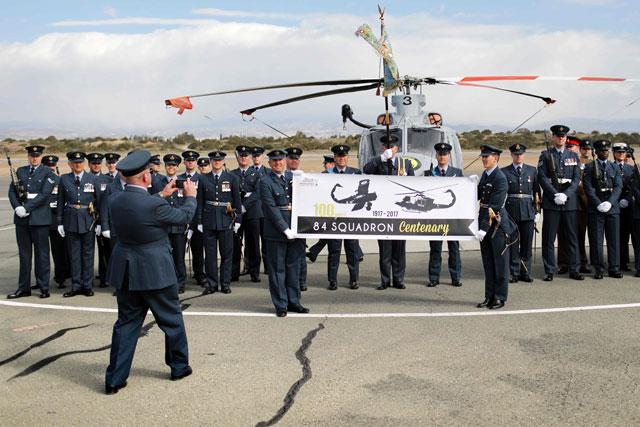You are here
Cyprus leaders to make joint Davos appeal for peace support
By Reuters - Jan 20,2016 - Last updated at Jan 20,2016

File picture shows a man in a shop watching a recorded Christmas televised message by Greek Cypriot leader and Cyprus President Nicos Anastasiades and Turkish Cypriot leader Mustafa Akinci (right) in Nicosia, Cyprus, December 24, 2015 (Reuters photo)
DAVOS, Switzerland — The leaders of the divided island of Cyprus will make an unprecedented joint appeal to the world's political and business elite in Davos on Thursday to support their efforts to reach a settlement to their decades-old dispute.
Cypriot President Nicos Anastasiades and Turkish Cypriot leader Mustafa Akinci, who have been negotiating on a possible deal since last year, will share the platform at a special session at the World Economic Forum annual meeting titled "Reuniting Cyprus".
UN and European officials say the prospects of finally reaching a peace deal to resolve one of the oldest frozen conflicts on the planet are better than at any time since Greek Cypriots rejected a UN peace plan in 2004.
"While the world is generally not in good shape, for Cyprus the stars are aligned," said Espen Barth Eide, the Norwegian UN special envoy for Cyprus and head of the WEF's global security programme.
"There's an interest among the leaders involved. Both Turkey and Greece see advantages to moving on," Eide told Reuters.
The east Mediterranean island has been divided since Turkey invaded the north in 1974 in response to a short-lived coup in Nicosia inspired by Greece's then military rulers.
Cyprus joined the European Union in 2004 despite the Greek Cypriot vote against reunification. However, its relations with Turkey have remained frozen, efforts to reduce the economic isolation of Turkish Cypriot northern Cyprus have stalled and Nicosia has blocked much of Ankara's EU accession negotiations over the continued dispute.
Sensitive issues remain
Peace efforts gained a boost with the election of two leaders who are personally committed to a negotiated settlement, as well as the discovery of large offshore natural gas deposits off Cyprus which would be easier to exploit if there is a deal.
A reunited Cyprus would also need international investment to help the peace process work. Reconstructing one resort town abandoned in the conflict is estimated to cost billions of euros, and compensation may also be required for people unable to reclaim their properties.
The regional strategic environment is more favourable because Greece's leftist government is less nationalistic than its predecessors and Turkish President Recep Tayyip Erdogan has tamed the military and is keen to improve relations with the EU.
Turkish Prime Minister Ahmet Davutoglu is due to address the Davos audience right after the Cypriot leaders and is likely to reaffirm his country's commitment to support a settlement this year, which would also remove an obstacle to closer EU ties.
Some diplomats in Ankara hope for agreement on the text of a deal before Cypriot parliamentary elections in May, and a referendum soon after that.
Anastasiades and Akinci are not expected to announce any agreement on Thursday because much detailed work remains on sensitive issues such as territory, the return of property or compensation. An international reconstruction fund with EU and private money could be a vital component.
"We have gone from harvesting relatively low-hanging fruit into the hard core deepest areas. We're in tougher terrain now and both leaders will have to make concessions," Eide said.
An agreement between the two leaders would have to be ratified in referendums in each of the communities and implemented over time with international support.
Anastasiades has not yet really begun to sell the benefits of a potential deal to a sceptical Greek Cypriot electorate.
Asked why prospects for a settlement were better now than in 2004, Eide said: "The one major difference is that this time the process is led by the Cypriots and their leaders. My role is to facilitate but we [United Nations] are not putting down our own proposals. Every word is written and agreed to by the sides."
Related Articles
NICOSIA — A UN-backed peace deal to end the division of Cyprus would cover its own costs in the long term by creating jobs and prosperity, t
NICOSIA — Turkish Cypriot leader Mustafa Akinci on Saturday proposed creating a joint committee across the divided Mediterranean island, to
NICOSIA — A round of UN-brokered peace talks between rival leaders of divided Cyprus broke up in acrimony on Thursday over moves for schools















